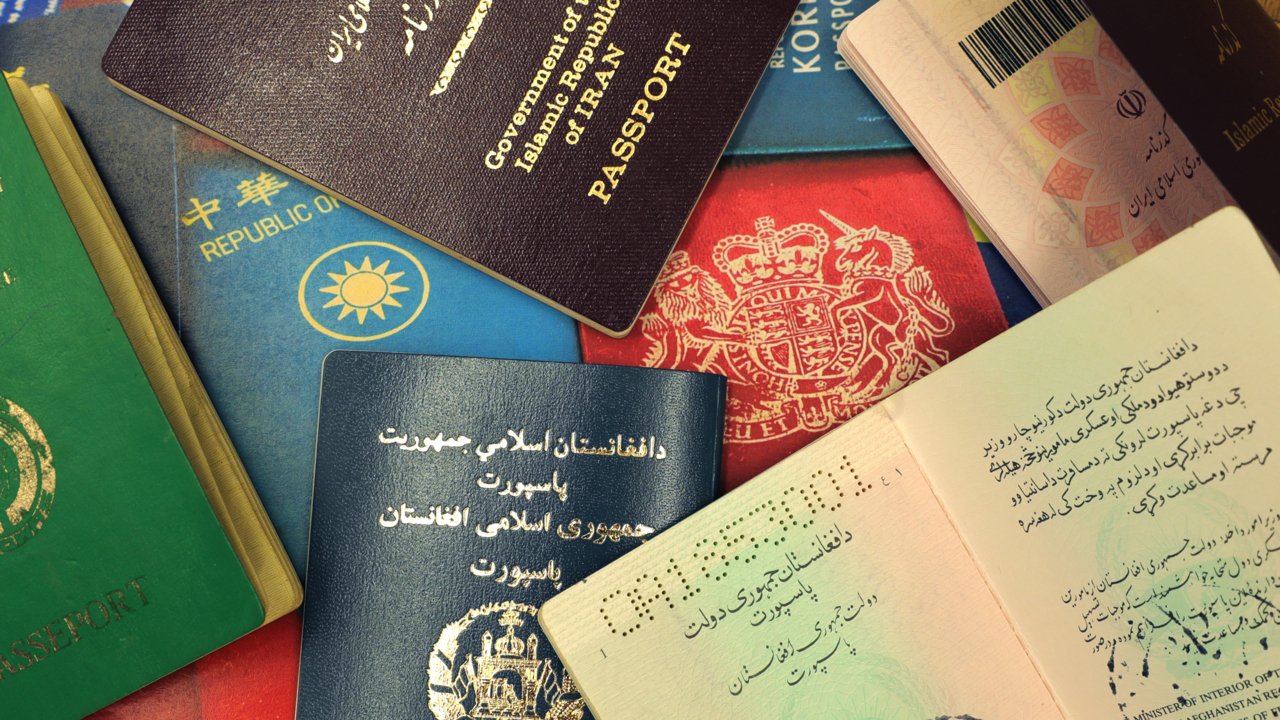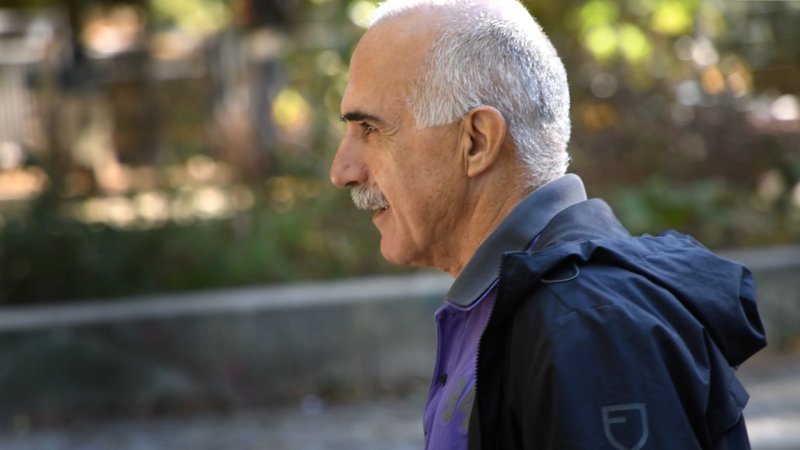"Duldung" for people with "unclear identities"

Am I going to be affected by “Duldung Light”?
There are many different types of tolerated stay or "Duldung"- and "Duldung for persons with unclear identity" according to §60b Residence Act is one of them. This is a special form of "regular" Duldung according to §60a Residence Act but has its distinct consequences, including the prohibition of working. "Duldung for persons with unclear identity" according to §60b Residence Act is often called "Duldung Light". Here you can find out who gets a "Duldung Light", what it means and what you can do when you are issued a Duldung according to §60b.
You can find general information on Duldung (according to §60a) in our chapter "Duldung".
What do I have to know?
Your Duldung type is specified on your Duldung paper. When your Duldung is issued according to §60b Residence Act, you may see the following sentences:
- „für Personen mit ungeklärter Identität“ ("for people with unclear identity")
- „Erlischt bei Besitz eines zur Ausreise bzw. Rückführung in den Herkunftsstaat berechtigenden Dokumentes“* ("Expires if you have a document authorising you to leave or return to your country of origin")
- „Erwerbstätigkeit nicht gestattet (§60b Abs. 5 S. 2 AufenthG)“ * ("Employment not permitted (Section 60b, Paragraph 5, Sentence 2, Residence Act)") and „Bei Verstößen droht Unternehmer/Arbeitgeber Bußgeld bis zu 500.000€“* ("In the event of violations, entrepreneurs / employers face a fine of up to €500,000")
- „Wohnsitznahme in … erforderlich“* ("Residency in ... required")
*These sentences may also be included in a “Duldung” issued according to Section 60a of the Residence Act.
If you have a „Duldung“ under Section 60a of the Residence Act, you may receive a “Duldung light” under Section 60b of the Residence Act when you renew it. This may be the case if the immigration authorities accuse you of the following, which is why you have not yet been deported:
- you have misled authorities about your identity or nationality (“Täuschung”), e.g., you have not given them your actual country of origin or have not submitted a real passport.
- you have given false information.
If you do not have a passport and you have (sufficiently) tried to obtain one. This is called the "passport procurement obligation" ( "Passbeschaffungspflicht"). You can find out more about this under ‘What does “passport requirement” mean?’.
The following applies to “Duldung light”: deception (“Täuschung”) only counts if it is still current. If the authorities now have the correct information, the deception is considered to have ended. To prove it, you must provide evidence that you visited the embassy of your country of origin and applied for a passport. Even if different information was provided earlier, it is sufficient to clarify the correct information later. Important: If criminal proceedings are pending against you for deception, these will continue.
Important: §60b Residence Act does not apply to you if:
- you are a minor. Minors are not liable for deception, false information or a missing passport - their parents or guardians are.
Please note: The immigration authorities are obliged to inform you of your ‘duty to cooperate’ (“Mitwirkungspflicht”). Your duty to cooperate consists of applying for a passport. In addition, the immigration authorities must give you the opportunity to apply for a passport.
Only if you fail to apply for a passport or prove that you have made an effort, the Immigration Office can give you a Dudung according to §60b Residence Act.
However, the obligation to obtain a passport applies automatically by law, even if the authorities do not point it out.
Good to know: The immigration authorities' notice regarding the ‘obligation to cooperate’ does not necessarily have to be in writing; it can also be given verbally. However, a written notice or a note about the conversation is safer. Since ‘Duldung light’ can have serious consequences, the notice must be given in such a way that the person concerned really understands it; if necessary, a translation is required. Before granting ‘Duldung light’, the person concerned must also be heard.
If you are unable to present a passport, you must demonstrate that you are making efforts to obtain one. Otherwise, you may be accused of not making sufficient efforts.
Possible evidence can be, for instance, an appointment confirmation from the embassy, a letter from the embassy or a letter to a relevant contact person in your home country. You can also try to prove your efforts with photos of your visits to the embassy. The Thuringia Refugee Council has developed a template that you can use for documenting your efforts. You can find it on the last pages of the booklet " Arbeitshilfe "Mitwirkungspflichten" (PDF).
If the evidence proves that you are making an effort, you have fulfilled your obligation to cooperate. When that is the case, §60b does not apply to you any longer and you will receive a Duldung according to §60a. You can find out more about your rights and obligations as a person with a Duldung according to §60a Residence Act in our chapter "Duldung".
Please note: Not making an effort to obtain a passport constitutes an administrative offence. This can be punished with a fine of up to €5,000. If you provide incomplete or incorrect information in order to obtain a “Duldung” again in accordance with Section 60a of the Residence Act, this will be punished as a criminal offence. It can result in a prison sentence of up to 3 years or a fine.
If you are unable to present a passport, you must demonstrate that you are making efforts to obtain one. Otherwise, you may be accused of not making sufficient efforts.
Possible evidence can be, for instance, an appointment confirmation from the embassy, a letter from the embassy or a letter to a relevant contact person in your home country. You can also try to prove your efforts with photos of your visits to the embassy. The Thuringia Refugee Council has developed a template that you can use for documenting your efforts. You can find it on the last pages of the booklet " Arbeitshilfe "Mitwirkungspflichten" (PDF).
If the evidence proves that you are making an effort, you have fulfilled your obligation to cooperate. When that is the case, §60b does not apply to you any longer and you will receive a Duldung according to §60a. You can find out more about your rights and obligations as a person with a Duldung according to §60a Residence Act in our chapter "Duldung".
Please note: Not making an effort to obtain a passport constitutes an administrative offence. This can be punished with a fine of up to €5,000. If you provide incomplete or incorrect information in order to obtain a “Duldung” again in accordance with Section 60a of the Residence Act, this will be punished as a criminal offence. It can result in a prison sentence of up to 3 years or a fine.
When you have a Duldung under §60b Residence Act, there are some direct legal implications you need to consider.
Holders of "Duldung light" are:
- Not allowed to work.
- Not allowed to move to another district.
- Your asylum seeker benefits will be reduced. So you get less financial aid from the state.
- The months or years with "Duldung light" are not counted if you later want to apply for a residence permit for people with Duldung such as the residence permit according to §25a or §25b Residence Act or a settlement permit. You can find out more about residence permits for people with Duldung at handbookgermany.de.
The prerequisite for obtaining “Duldung” according to §60b Residence Act is to make a credible effort to obtain a passport.
As soon as you can prove that you are trying to get a passport, you have fulfilled your obligation to cooperate. To find out how to do so, see "How can I prove that I am trying to get a passport?". As soon as you have fulfilled your obligation to cooperate, you can switch to the "regular" Duldung according to §60a Residence Act. And again have the rights that holders of a Duldung according to §60a Residence Act have. You can find out more about this in our "Duldung" chapter.
If you have (or qualify for) a Duldung according to §60b Residence Act, a counselling centre or lawyer can provide you with considerable support. A Duldung according to §60b Residence Act has several negative impacts that you should try to avoid.
You should also know how you need to help with obtaining a passport and what this means for you.
Many people with a Duldung are, for instance, afraid that they will be deported if they present a passport. For others, it is very difficult or even impossible to obtain a passport. It is therefore important that each individual seek case-specific counselling. You can find counselling centres nearby at Local Search. Here you can enter your place of residence and search for asylum, right of residence or legal advice.
Important
The months or years spent with “Duldung Light” under Section 60b of the Residence Act are not counted if you later wish to apply for a residence permit for persons with “Duldung” or a settlement permit (no “Vorduldungszeit”). However, if you apply for the so-called “Chancen-Aufenthaltsrecht”, the periods spent with “Duldung Light” will be counted. Further information on the subject of residence permits for people with “Duldung” can be found at handbookgermany.de


